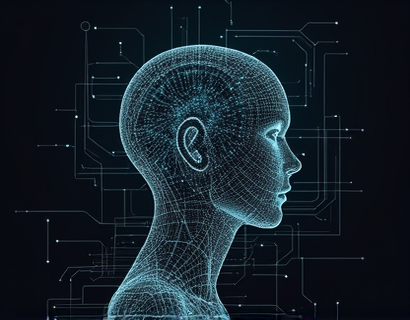AI-Powered Task Management: Transforming Personal and Professional Productivity
In the fast-paced world of today, managing tasks efficiently is crucial for both personal and professional success. The integration of Artificial Intelligence (AI) into task management systems represents a significant leap forward, offering intelligent solutions that streamline workflows and enhance productivity. This article delves into the transformative power of AI-powered task management, exploring how intelligent agents can redefine how we handle daily tasks, from simple reminders to complex project management.
Understanding AI-Powered Task Management
AI-powered task management involves the use of advanced algorithms and machine learning to automate and optimize the process of managing tasks. These systems can learn from user behavior, adapt to changing priorities, and predict future tasks based on historical data. The core idea is to create a seamless integration between technology and human workflow, ensuring that users can focus on high-value activities while the AI handles the mundane and repetitive tasks.
Key Features of AI Task Management Systems
AI task management systems come equipped with a range of features designed to enhance productivity and efficiency. Some of the most notable features include:
- Automated Task Creation: AI can analyze emails, calendars, and other digital communications to identify and create tasks automatically.
- Prioritization: By assessing the urgency and importance of tasks, AI can prioritize them, ensuring that critical tasks are addressed first.
- Predictive Scheduling: AI can predict the best times to schedule tasks based on user availability and historical performance data.
- Real-Time Updates: AI systems can update task statuses in real-time, providing immediate feedback and adjustments as needed.
- Collaboration Tools: AI can facilitate team collaboration by suggesting optimal task assignments and tracking progress collectively.
Benefits for Personal Productivity
For individuals, AI-powered task management offers numerous benefits that can significantly enhance personal productivity. By offloading routine tasks to intelligent agents, users can free up mental bandwidth to focus on more important aspects of life. Here are some specific advantages:
Firstly, AI helps in maintaining organization. With tasks automatically created and prioritized, individuals can maintain a well-structured to-do list without the effort of manual management. This reduces the cognitive load and minimizes the risk of forgetting important tasks.
Secondly, AI enhances time management. By predicting optimal times for task execution and suggesting breaks, AI ensures that users work efficiently without burnout. This balanced approach to time management leads to higher overall productivity and better work-life balance.
Lastly, AI provides insights through data analysis. By tracking task completion patterns and identifying time-wasting activities, AI can offer personalized recommendations to improve productivity. This data-driven approach allows individuals to make informed decisions and continuously refine their work habits.
Advantages for Professional Productivity
In a professional setting, AI-powered task management can revolutionize how teams and individuals handle workflows. The benefits extend beyond personal productivity to encompass team collaboration, project management, and overall business efficiency. Key advantages include:
First, AI streamlines project management. By automating task assignments, tracking progress, and providing real-time updates, AI ensures that projects stay on track and deadlines are met. This reduces the need for constant manual oversight and allows managers to focus on strategic decision-making.
Second, AI enhances team collaboration. Intelligent agents can suggest optimal team compositions for tasks, facilitate communication, and ensure that everyone is aligned with project goals. This fosters a more cohesive and efficient working environment.
Third, AI improves resource allocation. By analyzing task complexity and team capabilities, AI can recommend the most suitable resources for each task, optimizing the use of human and technological resources. This leads to more effective use of company assets and reduced operational costs.
Integration into Daily Routines
The seamless integration of AI task management into daily routines is one of its most compelling features. These systems can integrate with existing tools and platforms, such as email, calendars, and project management software, to create a cohesive workflow. Users can experience the benefits of AI without the need to overhaul their current systems.
For instance, an AI agent can monitor incoming emails and automatically create tasks based on specific keywords or sender priorities. It can also sync with calendars to schedule tasks at optimal times, ensuring that users are always prepared for upcoming commitments. This level of integration ensures that AI becomes a natural part of the daily workflow, enhancing rather than disrupting existing routines.
Case Studies and Real-World Applications
To better understand the practical applications of AI task management, let's look at a few real-world examples. In the field of software development, teams use AI to manage agile sprints, automatically assigning tasks to developers based on their availability and expertise. This not only speeds up the development process but also ensures that the right people are working on the right tasks at the right time.
In the creative industry, AI-powered task management helps project managers oversee multiple projects simultaneously. By prioritizing tasks and providing real-time updates, AI ensures that deadlines are met and that creative teams remain focused and productive.
Another example is in the healthcare sector, where AI assists in managing patient care tasks. AI can prioritize patient appointments, remind healthcare providers of critical tasks, and even suggest follow-up actions based on patient data, leading to improved patient outcomes and more efficient operations.
Challenges and Considerations
While the benefits of AI task management are clear, there are also challenges and considerations to keep in mind. One of the primary concerns is the initial setup and integration with existing systems. Users need to invest time in configuring the AI to understand their specific workflows and preferences. However, once set up, the long-term benefits far outweigh the initial effort.
Another consideration is data privacy and security. AI systems handle sensitive information, and it's crucial to ensure that these systems comply with data protection regulations. Reputable AI task management solutions prioritize security, implementing robust encryption and access controls to protect user data.
Lastly, there is a learning curve associated with adopting AI-powered tools. Users should be prepared to spend some time familiarizing themselves with the system's features and capabilities. However, most AI task management platforms offer intuitive interfaces and comprehensive support to ease this transition.
Future Trends in AI Task Management
The future of AI task management is exciting, with several trends shaping the evolution of these systems. One significant trend is the increased use of natural language processing (NLP) to enhance user interaction. AI agents will become more conversational, allowing users to interact with them using natural language, making the experience more intuitive and user-friendly.
Another trend is the integration of AI with other emerging technologies, such as augmented reality (AR) and the Internet of Things (IoT). For example, AI could use AR to provide visual task guidance or integrate with IoT devices to automate physical tasks, further blurring the line between digital and physical workflows.
Additionally, there is a growing focus on ethical AI and transparency. As AI becomes more prevalent, ensuring that these systems are fair, unbiased, and transparent is crucial. Future AI task management systems will prioritize ethical considerations, providing users with clear insights into how decisions are made and ensuring that AI enhances rather than undermines human agency.
Conclusion
AI-powered task management represents a significant advancement in productivity tools, offering a blend of intelligence, automation, and user-centric design. By leveraging the power of AI, individuals and businesses can streamline their workflows, reduce manual overhead, and focus on high-value activities. As the technology continues to evolve, the potential for enhancing personal and professional productivity is immense. Embracing AI task management is not just about staying current; it's about unlocking a new level of efficiency and success.











































